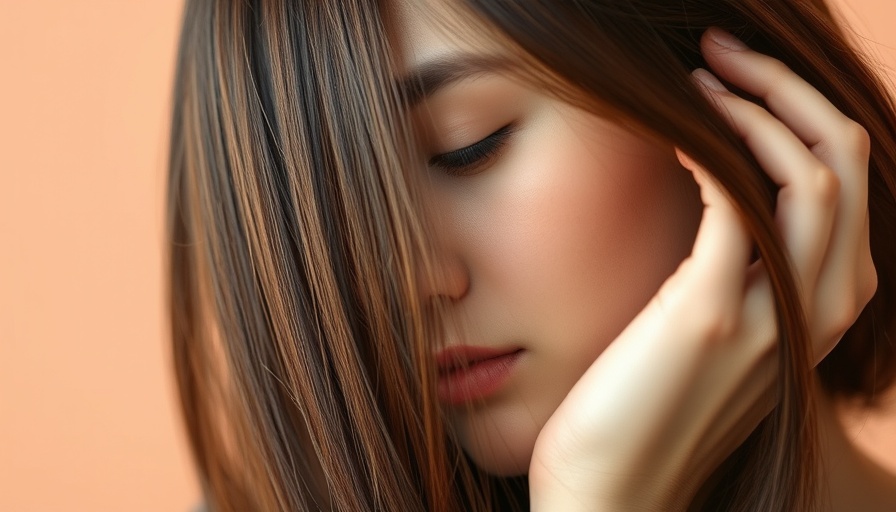
Understanding the Link Between Menopause and Hair Thinning
For many women, the journey through menopause brings unexpected physical changes, one of which is hair thinning. It can be unsettling to notice more hair than usual falling out, but understanding the factors behind these changes can empower women to navigate through this life stage with confidence.
Hormones at Play: The Role of Estrogen and Progesterone
During menopause, levels of estrogen and progesterone decrease significantly, impacting hair growth cycles. According to Dr. Jessica Shepherd, a specialist in menopause, this hormonal shift halts the growth of hair, contributing to thinning and shedding.
Research indicates that hormonal changes can accelerate hair loss, especially as women enter the postmenopausal phase, which lasts for 40% of their lives. Recognizing that these alterations are natural can help in framing a proactive approach to maintenance and treatment.
Identifying Underlying Causes: More Than Just Hormones
Unusual hair loss can stem from various causes beyond hormonal changes. Dr. Mona Gohara emphasizes the importance of consulting with a healthcare provider to rule out underlying health issues such as thyroid dysfunction or nutrient deficiencies. Stress, either physical or emotional, can also disturb the hair growth cycle. It's crucial to assess lifestyle stressors that might contribute to hair shedding.
Healthy Habits: Tips to Support Your Hair
Adopting a holistic perspective on hair health is essential. Stress management techniques can play a significant role in maintaining hair density. Mindfulness practices such as meditation, yoga, or simple breathing exercises help mitigate the physiological impact of stress on the body, allowing the hair cycle to normalize.
Additionally, evaluating hair care habits can prevent further damage. Avoiding tight hairstyles and minimizing the use of heat or harsh chemicals contributes significantly to preserving hair health. Looser hairstyles, coupled with gentle hair care routines, can protect hair follicles while promoting a more vigorous growth cycle.
Your Next Steps for Healthier Hair
Understanding the correlation between menopause and hair thinning is the first step toward addressing these concerns. Women should embrace the changes as natural while actively seeking strategies to care for their hair and overall well-being.
Consider incorporating nutrient-rich foods that support hair health, manage stress effectively, and consult with healthcare providers about potential treatments if the situation doesn't improve. Taking charge of your health will not only foster hair resilience but also enhance self-esteem and quality of life during menopause.
Invest in your self-care practices today by exploring wellness programs and nutrient education. Your hair and overall health will thank you!
 Add Row
Add Row  Add
Add 




Write A Comment